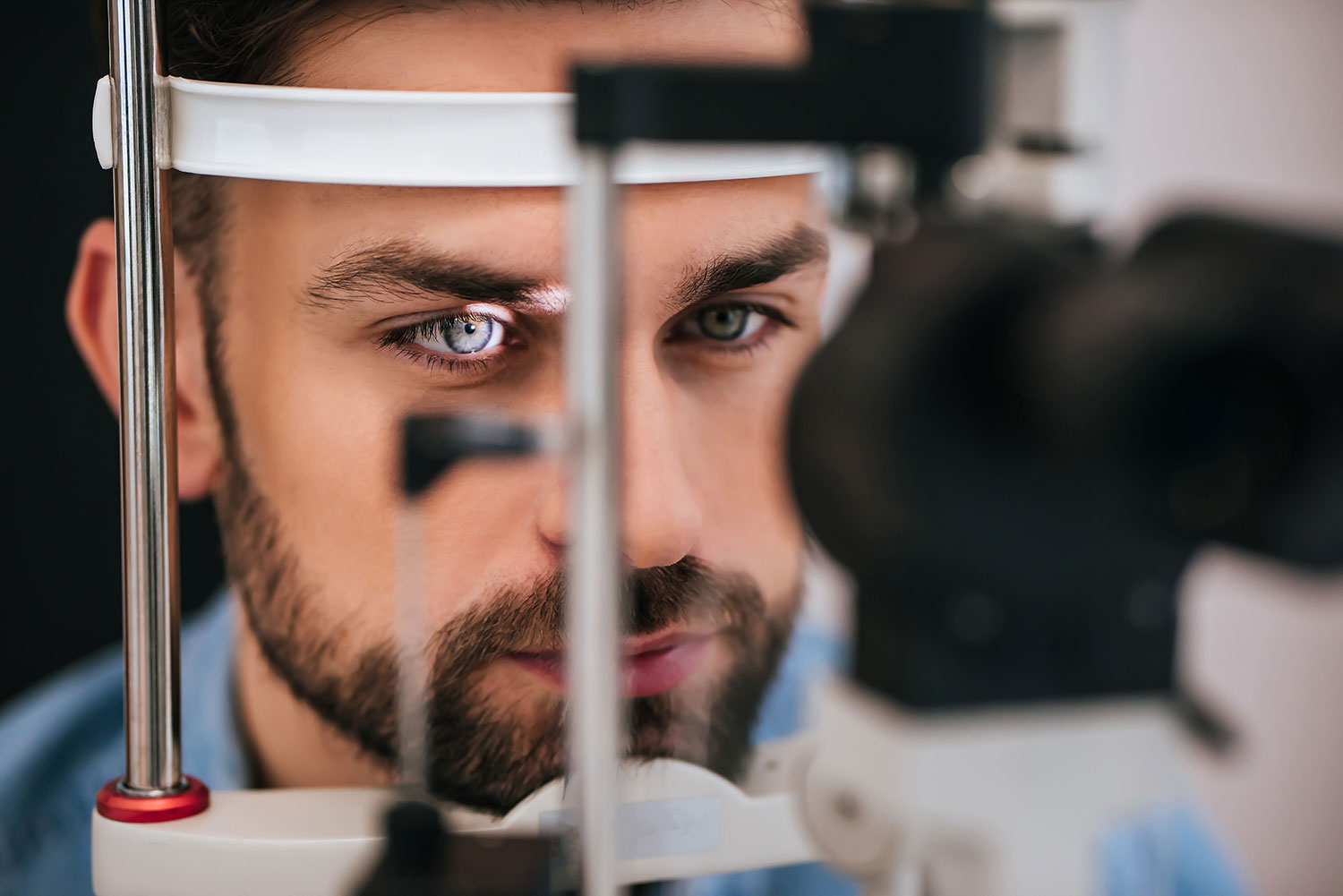Glaucoma
What is Glaucoma?
Glaucoma is a multifactorial disease process with many different sub-categories. In the simplest sense, glaucoma is an eye disease in which the fluid pressure within the eye is elevated. This elevated pressure (referred to as intraocular pressure or IOP) can cause damage to the optic nerve. If glaucoma is left untreated vision loss or even blindness may occur. Glaucoma is often “silent” meaning early to moderate glaucoma is usually imperceptible and not noticeable. It is up to eye doctors to diagnose and treat glaucoma before it has a chance to affect vision. Glaucoma can only be accurately diagnosed by a thorough eye exam and regular follow up. Don’t neglect your vision, call us today!
What are the risk factors for developing glaucoma?
The risk of developing glaucoma increases with age. There are a few risk factors for developing glaucoma that are independent of age: family history of glaucoma, African-Amercian race, high blood pressure (hypertension), diabetes.
I have a family member with glaucoma, should I be worried about going blind?
While it is true that having a first-degree relative with glaucoma does increase your chance of developing glaucoma, it does not guarantee that you will develop glaucoma. There are certain genes that increase chances of developing glaucoma. These genes can sometimes be passed down (or inherited) in families. But having an affected family member, or sometimes, even inheriting a glaucoma gene, does not mean you will develop glaucoma. If you have family members who have glaucoma it is very important to get an annual dilated eye exam to check for glaucoma. This must be done every year to ensure the best chance of early diagnosis and treatment if you should develop glaucoma.
Can glaucoma be prevented?
No, but early detection and treatment can control glaucoma and reduce the chances of damage to the eye and a loss of sight. The earlier glaucoma is diagnosed and treated, the better chance of preserving vision. It is very important to get an annual dilated eye exam to check for glaucoma.
How is Glaucoma Treated?
Glaucoma is usually effectively treated with prescription eye drops. In some cases, oral medications are used. Newer evidence supports the use of a special, non-destructive laser (called SLT) which can help an eye with glaucoma to improve fluid drainage. Treatment of glaucoma cannot reverse any damage or vision loss; the goal of glaucoma treatment is to prevent further loss of vision. Since glaucoma treatment cannot restore lost vision, it is critically important to diagnose and treat glaucoma as early as possible to prevent vision loss from occurring in the first place.
What is minimally invasive glaucoma surgery (MIGS)?
There have been many recent advancements in glaucoma surgery. Traditionally, glaucoma surgeries were invasive procedures prone to moderate amounts of risks, complications, and need for repeat surgeries. In recent years, newer techniques and devices have emerged and have been given the name Minimally Invasive Glaucoma Surgery (MIGS).
MIGS surgeries have the advantages of helping to lower eye pressure, but with much less risks of complications compared to traditional glaucoma surgeries, such as trabeculectomy and tube shunt. MIGS procedures typically only last 5-10 minutes and are performed without the need for general anesthesia or intubation. The surgeries are comparable to cataract surgery as far as recovery and tolerability.
Azar Eye Clinic was the first eye clinic in Lafayette, LA and Acadiana to begin implanting the iStent, one of the leading MIGS devices on the market. The iStent is the smallest implant that is FDA approved to be placed into the human body. The original iStent has been replaced by the iStent Inject which offers improvements over the original iStent design.
Will my vision improve after glaucoma treatment or surgery?
Unfortunately, any vision loss as a result of glaucoma is usually permanent and cannot be restored. This is why it is critically important to diagnose and treat glaucoma as early as possible to prevent vision loss from occurring in the first place. An annual dilated eye exam can help to diagnose glaucoma as early as possible to lower the chance of permanent vision loss.



